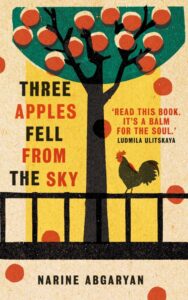Listen on Spotify and other podcast platforms.
Tanya Coke is a lawyer, writer, and philanthropy executive at the Ford Foundation. She speaks to managing editor Emily Everett about “Brother Love,” her essay from Issue 19 of The Common magazine. Coke discusses both the beautiful and the difficult parts of writing about her own family, the process of being a writer and an artist, and what it means to helm the Ford Foundation’s Gender, Race & Ethnic Justice division.















